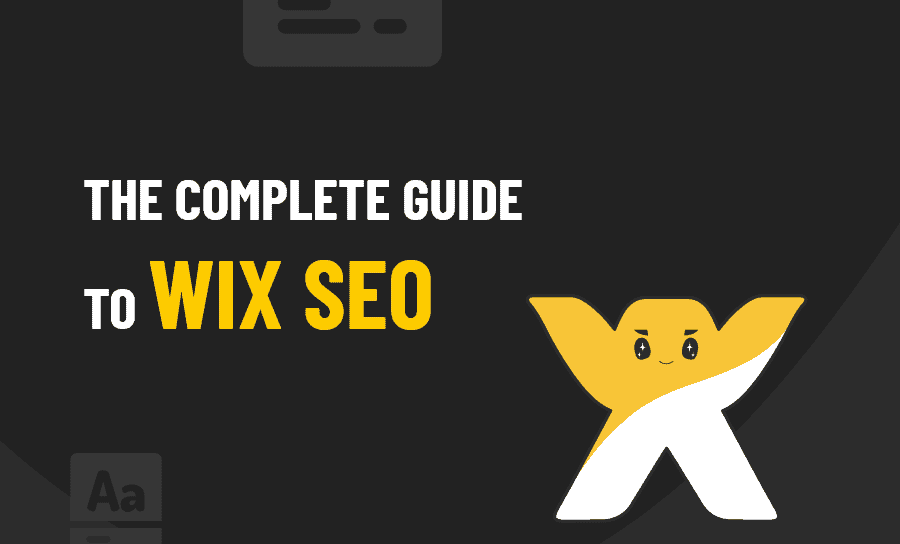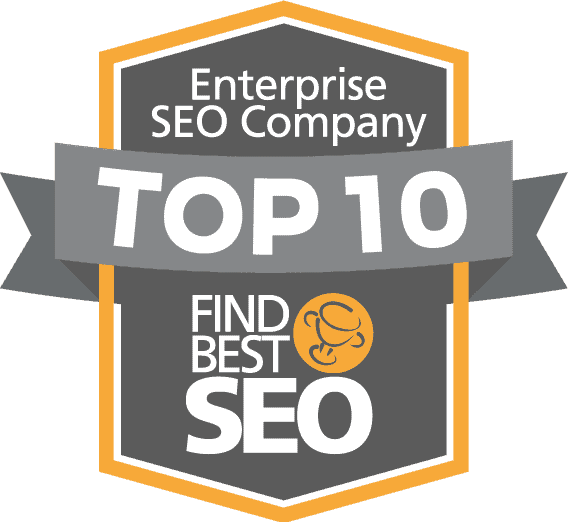Wix is by far the most user-friendly website builder completed with tools and tips to expand your online promotion or SEO.
SEO or search engine optimization, in other words, refers to the marketing strategy aimed at making your business found online to garner more organic traffic; i.e., traffic that does not come from advertisements but from search engines.
Before letting you in on a few of the best-kept secrets of the SEO industry, it’s important to differentiate between SEO Basics and Advanced SEO.
SEO Basics
Wix as a website builder offers its users two sets of tools and features – To start with is the SEO basics which include the standard built-ins such as:
Rapid Load Time
The loading time for a standard Wix website is the fastest possible– giving the visitor and the best user experience from the very moment they land on the homepage of your website.
 Photo Credit: popupsmart.com
Photo Credit: popupsmart.com
Mobile Optimised
Providing a mobile version of your website is by far, one of the unique features offered by Wix.
Since search engines prioritize mobile-friendly sites, this tool makes a big difference by automatically creating a mobile version of your site, guaranteeing the best
performance across devices.

Photo Credit: websitebuilderly.com
Instant Google Indexing
Wix allows your website to be listed on Google in under 30 seconds; all you have to do is pick your keywords, follow your personalized plan, and see your site rank.

Photo Credit: Wix.com
Secure Hosting
Coming with an SSL certificate – the highest security standard, as well as an encrypted data over an HTTPS connection, Wix can be trusted to protect all of your sensitive data- such as payment information and passwords.

Photo Credit: donorbox.org
Structured Data
Allowing you to add schema markups to your website code helps the search engines return more informative results for users and display rich results of your own site.

Photo Credit: support.wix.com
XML Sitemap
Wix is not limited to creating but maintaining your sitemap by keeping everything updated. Check out their guide here.

Photo Credit: support.wix.com
Robots.txt File
Auto-generating a Robots.txt file, which is a text file that tells web robots (most often search engines) which pages on your site to crawl and which pages not to crawl is an added feature of the website-building app. To find out how you can edit your Robot.txt file, click here.

Photo Credit: seoptimiser.com
Canonical URLs
A canonical link element is an HTML element that helps webmasters prevent duplicate content issues in search engine optimization by specifying the “canonical” or “preferred” version of a web page. This feature maximizes your authority over the most relevant content of your site in search results.

Photo Credit: communitywix.com
Default Meta Tags
Wix presets meta tags (and editing features) that accurately describe your site content to search engines that you can make changes to at any point in time.
Advanced SEO
The second set of tool is within the Advanced SEO tools, which include:
Customize Meta Tags
Apart from writing meta tags for your website, Advanced SEO allows you to edit and optimize the meta tags for search engines allowing the crawlers to process your site pages the way you want.

Photo Credit: support.wix.com
Customize Canonical URLs
Defining canonical tags would instruct search engines on which URLs are the master versions of your site pages and avoid issues with duplicate content.
Customize SEO Patterns
Building SEO-friendly tags and URLs with advanced patterns adds an edge to your website. Edit a page type once, and your custom pattern instantly updates across your site pages.

Photo Credit: support.wix.com
Add 301 Redirects
Adding 301 redirects ensures visitors land on the right page and maintain link equity when you need to redirect one URL to another permanently.

Appear as a Rich Result
For Google to read and display a rich snippet of your business information, adding structured data could be very beneficial.
Edit Page Information for Social
Personalize text and images you want to be displayed or edit when site pages are shared on Facebook, LinkedIn, Instagram, and more.

Photo Credit: support.wix.com
Wix Marketing Tools
Using built-in marketing integrations as well as the Wix App Market, like Google Analytics, Google Tag Manager, Google Data Studio, Facebook Pixel and Ascend by Wix, to run A/B tests can be used to optimize your website’s online presence to drive more conversions.

Photo credit: wix.com
Custom Events
Sending tracking events to external analytic tools, like Google Analytics and Facebook Pixel, using Corvid’s trackEvent API are advanced features aimed at making your website stand out.

Photo Credit: support.wix.com
Third-Party Apps
Connecting to industry-leading marketing tools and integrations, like Hotjar, Crazy Egg, Privy, Hello Bar, CallRail, MailChimp, and more, gives you the benefit to monitor visitor behaviors and gain actionable insights to make tweaks on your website wherever necessary.

Photo Credit: mercadowixdesign.com
These sets of Basic and Advanced sets of tools allow you to optimize your website to different degrees. Now that a holistic view of the Wix features have been highlighted and comprehensively discussed, we will now look at the tools at your disposal to earn your website a great spot on Google’s search engine result pages (SERPs).
Wix SEO Tips
Our SEO experts here at Pearl Lemon have shortlisted the top 12 SEO tips for all avid Wix users to expand your audience (possibly clients) and boost your ranking, making it a lot easier for the Google crawlers to index every inch of your website!
Wix SEO Wiz
Wix SEO Wiz completely eliminates your need to go out of your way to hire professionals to ramp up your SEO. Not only is it an intuitive tool that helps you to improve your ranking on the SERPs, but it is free of cost!

Photo Credit: wix.com
After answering some basic questions and filling in your keywords, the Wiz provides you with a tailored plan.
This plan provides you with a step by step approach to undertake all the necessary actions for your website to rank higher. After conducting conclusive research, it’s been found that 67% of websites using Wiz have appeared on Google’s first page.
It might also be important to know that Wix and Google share an exciting collaboration where Wix has partnered with Google to help smaller websites get indexed within 30 seconds.

Photo Credit: wix.com
Owing to the partnership, Wix worked with Google to enable the content to index very quickly. Wix used an API to enable companies to submit their site — a function that only works on the original submission. Subsequent changes to each page on the site still take time.
Once the site gets submitted, the user can follow other steps to improve the site’s SEO.
Using Long-Tailed Keywords
Keywords are two to five-word phrases that your potential clients would type into a search engine when looking for you (or a business like yours.)
The drawback of using short keywords is that you tend to compete with a large threshold of billions of results. For example, if you are an online e-commerce company selling headphones, you would want your searchers to type in “best headphones”.

Photo credit: OnCrawl.com
However, adding such small keywords would generate millions of results and is very likely to rank your competitors higher who have been in the industry much longer.

Photo Credit: semrush.com
This is why using longer keywords help as it allows your business to boil down to certain key features such as “best headphones in London” or “best headphones under £15”.
The more targeted your keyword, the better as you’ll be able to attract the right audience and increase the chances of searchers clicking on your website from search results.
At Pearl Lemon, we have carefully selected the most effective ways to help you find the keywords for your website:
One of the best ways to rank high is to make sure you find the right keywords for your business and to use these words in the text and other elements of your website.
Make a List
The first step to a Keyword hunt is to maintain an organized list of all your findings. Try and think of possible keywords your visitors’ may type, or even google the most used phrases so that you can refrain from using them, to avoid getting lost in the crowd. As always, remember to stand out!

Photo Credit: searchenginejournal.com
Be Specific
While brainstorming, make sure you choose words that resonate with you, your business and the product or service it offers. Then, add your edge to it by making it trendy by means of using words like DYI.
If you run a local business, try adding a word that describes your location. This will help you target customers in your area and help the right people find your site.
Put yourself in your Customers’ Shoes
Play around with your perspective; instead of focusing on how your business should be presented, think about how you would like for it to be found.
Think about what your potential client would be looking for as they Google away on their computer or phone. For example, if you describe yourself as a “painter”, your target audience may be looking up the term “artist” more often on search engines.
Embrace Technology
As much as organically thinking of effective keywords may help, using tools such as Google Analytics, Moz Explorer, or SEMRush may come in handy in your keyword hunt.
Photo Credit: PageUp.com
These tools tell you exactly how many people are searching for specific terms each month. They also suggest terms to use and can tell you if a keyword is very competitive.
Consider hiring an SEO specialist or an SEO agency to fulfil your off-page SEO goals. If you are looking to hire an SEO expert, you must use an aptitude test to assess their skills and abilities during the hiring process.
Google Keyword Tool
Apart from being a free SEO tool, Google Keyword Tool is owned by – Google. The only condition for using the tool is to run an AdWords campaign on Google. If you do want to set up an AdWords campaign, however, you can then use the Keyword Tool to access monthly search numbers for a specific term nationwide, in your state, or even in your city.

Photo Credit: SirenSearch.com
Moz Explorer
While the Moz keyword tool only provides nationwide search data, it is excellent at recommending phrases that you may not have thought of. Its ability to suggest longer tail (more than 3-4 words) keywords with lower search volumes make it a great choice for small businesses.

Photo Credit: HookAgency.com
Moz charges a monthly fee, but you can try it out free for 30 days. (And that should be more than enough time to get all the data you need.)
SEMrush
In addition to getting keyword data, you can also use it to find out how your competitors are ranking. (Just enter their Domain, click on Organic Results and click on Positions) SEMRush only gives you one day to try out their tool and then you’ll have to pay.

Photo Credit: SeerInteractive.com
Study your Competitors
While you may be an excellent baker based in the heart of New York City, phrases like “best NY baker”, or “the best New York bakery” are not likely to help you a lot in your ranking on the SERPs. These are highly competitive terms, and it will be virtually impossible for a start-up bakery to show up on the first page of Google.
Find a niche instead – Look for your niche and try to find keywords that represent it.
Are you particularly talented when it comes to wedding cakes or small cupcakes? Or do you specialize in a certain type of cookie whose recipe was handed down to you through generations? Add some specific adjectives to your key phrases, and you’ll boost your chances of ranking high.
Always choose Quality over Quantity
Choosing keywords that are highly competitive makes your SEO process very cumbersome. Instead, look for quality keywords that accurately and specifically describe what you do.
Wix SEO Wiz often comes handy in such situations- it will help you find the best keywords and show you exactly where they should be placed on your website.
Choose the Right Domain
Securing your own domain and connecting it to your website is a very effective SEO practice as it adds a professional edge and stands out.

Photo Credit: mogul.com
Most people, however, stop here. To truly optimize your website, you need to take it a step further by choosing the right domain, the one specifically tailored to your website needs.
Choosing a domain name is an important part of your online presence for three reasons:
This process includes three steps:
Short and Catchy
You want to keep it as short and catchy as possible to make the Internet browsers want to click when seeing your name.
Include Relevant Information
Your business name or area of expertise should be included so that visitors can easily understand what you do.
Use Main Keywords
It’s a great idea to include your main keyword as it may increase your chances of coming up in the search results for your chosen word.
How to Choose a Domain Name for Your Website
A domain name is your unique address around the web, made up of your website’s name and suffix (or extension). For example, Wix’s domain is wix.com, with “.com” being the suffix.
This is not to be confused with a URL. A URL is a more specific web address, directing to a single page within a website. This particular blog post’s URL, for example, is https://www.wix.com/blog/2019/08/how-to-choose-domain-name/ (as you can see for yourself at the top of your browser).
Now that we have cleared the meaning and understanding of what a domain name is, here’s how to choose the perfect one for your website:
Be Concise
Irrespective of the technicalities allowing domain names to be stretched over 63 characters, it is not recommended to cut it any close to that number, mainly because of how hard it becomes for your visitor to remember to type it.
A domain name should ideally be anywhere between 3 to 12 characters long. If the name you had in mind happens to be longer than that, consider cutting it down or changing it altogether.
Restrict to Alphabetical Letters
Unlike your password, your domain name should be limited to alphabets only; particularly because the domain name “gr8cakes-4all” doesn’t sit well with professionalism.
Flaunt Local SEO
Highlighting your location in the domain might help you acquire more traffic through local SEO. Your location can be incorporated into the domain name as its extension, in place of the more common “.com.” such as “co.uk” to appeal to your target audience.
Another important aspect of Local SEO is associated with choosing the right domain. While “.com” is certainly the most common extension out there, there are many other options that can serve different needs for different websites.
There are many available domain extensions, ranging from the quirky (like “.guru”) to the explanatory (such as “.tv”). Here are just a few of the major domain extensions explained:
.org:
Short for “organization,” this domain extension is most often used for non-profit and charitable organizations. For example, wikipedia.org.
.net:
Literally referring to the Internet itself, this extension is commonly used by online businesses, startups and other high-tech applications and services. For example, behance.net.
.info:
This extension is an abbreviation for “information” and is generally used for informative or educational sites.
.me:
An extension that’s highly fitting for resume websites, blogs, online portfolios, and personal brands.
Local extensions:
As previously mentioned, this type of extension shows off your physical whereabouts and might give your local SEO a boost. A few examples include “.de” for Germany, “.fr” for France, “.co.uk” for the United Kingdom, and more.
Avoid Legal trouble
Before purchasing your domain name, do your fair share of research and ensure that you’re not infringing on the competition such as through research trademark and copyright databases, as well as competitor brands.
Customer confusion and possible legal issues are some of the repercussions of adopting domain names which are synonymous with other brands.
How to register your domain name
Finally, after deciding upon a strong domain name with unique keywords and taking advantage of your Local SEO (in case your business is regional in nature), it’s time we get to purchasing it for the world to recognize your business.
Be sure to register your domain from a licensed registrar, such as Wix.com. An accredited registrar will deal with the ICANN (Internet Corporation for Assigned Names and Numbers) on your behalf, in order to protect your domain name and ensure that it remains yours and only yours for the entire duration of your purchase.
Choose your domain name
First, you’ll want a name that reflects your brand identity, while aligning with the tone of your website design, logo, product and service. Stick to a name that is short and catchy, so that people will be able to remember it easily, as well as type it directly into their browser’s address bar.
To improve your SEO efforts, your domain name can incorporate a keyword that is associated with or describes with your brand. For example, a photographer may opt for their own name plus the word “photographer,” or a pizza company called Pizza Hub might go for “TastyPizzaHub.com.”
Once you’re ready, create a shortlist of potential names. You’ll want a few options, as it’s possible that some of them will already be taken by other websites.
Check the availability of your domain name
There are numerous powerful domain name search software that would enable you to try out an unlimited number of options for free. If your desired name is unavailable, it will come up with additional ideas so you can play around with alternatives until you find the perfect one.
Another good tip for if your domain name is already taken is to try out your domain with different extensions – likelihoods are you’ll find an available option that way. Additionally, you can add a keyword to your domain name, or opt for an abbreviated version of your business name. (And if you don’t have a name for your business yet, claim yours with the Wix Business Name Generator.)
Moreover, switching existing extensions to a local one or adding their location in the name itself, swapping around the words present good chances for you to acquire your desired domain name. For example, “TastyPizzaHub.com” or “TastyPizzaHub.co.uk.”
Pick your registrar
A registrar is a company that does all the “paperwork” for you, managing the full process of the reservation and protection of your name online. While there is an organization that centralizes everything to do with domain names (the ICANN, a.k.a. Internet Corporation for Assigned Names and Numbers), a registrar will deal with them on your behalf, making your life that little bit simpler.
Wix.com, as a web hosting service, is a recommended registrar. This means that you can enjoy the best of both worlds, using the platform to create a website and purchase a unique domain – all under one roof. Additionally, most of Wix’s Premium Plans offer a free domain for the first year. Alternative registrars include GoDaddy, Domain.com, and NameCheap amongst others.
Register your domain
Last but not least, here are the steps to register your domain via Wix:
Head over to Wix’s domain name search page.
Type in your preferred domain name and click ‘Search’.

Photo Credit: Wix.com
If your name is available – you’re in luck! Click ‘Get It’ to proceed. If not, browse the additional ideas that Wix offers you, or type another option into the search bar. Once you’ve found a domain name that you like and suits your company’s needs, click ‘Get It’.
Next, decide whether you’d like to register for one, two or three years. A longer registration period will help you save money over time, so you may want to consider that. Once you’ve chosen, click ‘Continue’.

Photo Credit: support.wix.com
Add all the relevant information into the online form and continue to check-out. That’s it – you’re done!
Note that prices vary based on different factors like the domain extension and the terms you select (such as securing a domain for a longer period of time). However, most of Wix’s Premium Plans include the first year of domain registration for free.
By combining both a website host and a domain registration with Wix, plans such as these allow for an all-in-one business solution, where you can seamlessly build your website, register and connect your domain, and enjoy many other professional online tools, all under one roof.
Unique Titles and Descriptions
SEO crash course 101 dictates that you manipulate the meta descriptions to your advantage through thorough optimization.
This is important because when Google notices the same metadata across websites, it may seem like your website contains duplicate content. This is ‘frowned upon’ by search engines, as they won’t know how to rank your pages.
Therefore, adding unique keywords in titles and descriptions adds an edge to your meta description and is smoothly indexed by crawlers, no questions asked.
Equally important is to write titles and descriptions that are catchy and attractive so that the Internet people will choose your website, rather than another result.
Make it Mobile-Friendly
According to recent studies, it’s been found 50% of searches are done via mobile, and this number will only continue to grow. While we can’t change these statistics, we can definitely adapt to it, and with Wix, it doesn’t get any simpler!

Photo Credit: support.wix.com
Luckily, your Wix website already comes with a mobile-friendly version. Not to mention, that it’s possible and super easy to implement accelerated mobile pages (AMP) so that your blog posts load über-quickly on mobile when clicked on from search results.
Submit a Sitemap
In simple terms, a sitemap is a plan of your website, which shows how different web pages on your website are connected.
The reason why it’s essential to send your sitemap to search engines is for the ease of the crawlers to index your website; more precisely, every webpage of your website.
One way to submit your sitemap is via Google’s Search Console. The process is a tiny bit technical but worry not, as there is a whole step-by-step guide to help you along the way:
Step 1:
Select your site on your Google Search Console home page.
Step 2:
Click Sitemaps from the menu on the left.
Step 3:
Type sitemap.xml in the text field next to your domain.
Step 4:
Click Submit.

Photo Credit: sitemappro.com
Another recommended and easier way to submit your sitemap is by using Wix SEO Wiz. All you need to do is connect your domain, and in a click, you can easily submit your sitemap. Yes, it’s that easy.
Consider Local SEO
Local SEO is very crucial to any business, especially to start-ups, since you’re very likely to attract visitors or clients to your business locally, before trying to go big.
Local SEO refers to specific actions you can take to make sure that your site appears in search engines when someone is looking for a business in your area. It helps search engines like Google and Bing associate your activity with your geographic location – and decide where to display your website on their results page.
Step 1: Google My Business
The best way to start is by claiming your business on Google My Business and filling in your profile. This way, your business can be found when searching on Google Maps.

Photo Credit: needmomentum.com
Moreover, you’ll have a chance to win some prime real estate in Google’s local pack, The Local Pack takes the highest-ranked businesses from Google Maps and places them at the top of Google search results.
Step 2: Local Directories
Another way to get your business known locally is to sign up for as many local directories as you can.

Photo Credit: seositecheckup.com
Local directories are listing sites and social communities that specialize in indexing small businesses. Yelp, Foursquare, and TripAdvisor are among the most famous of these sites.
Google search holds many of these sites in high regard and establishing yourself on these directories ensures that your business receives a dramatic boost in search rankings. To help you get listed, be sure to check out the Site Booster app. It will do a lot of the legwork for you!
Step 3: Update your NAP
NAP or the Name, Address and Phone number must be optimized to the fullest to improve your local SEO and should be the exact same across the internet; if not, search engines may accidentally think you have two (or more) different locations.

Photo Credit: seranking.com
Structure your Site
In addition to making sure crawlers efficiently index each and every webpage of your website, structuring your site, it considerably improves user experience by enabling them to peruse through your site freely.
This helps metrics my improving them, such as the number of pages visited and total time spent on the website, which ultimately dictates your ranking on the Internet across search engines.
Wix website templates automatically provide you with an optimal structure for your website- it comes with an intuitive menu to make navigation on your site simple and easy to understand.
Moreover, the heading tags are all formatted in a way to give hierarchy to your page so that it looks and feels organized.
Caption your Images
As visually impactful images make your website content, it is equally important to caption them for context to enhance the user experience. Search engines tend to perceive websites with optimized images as more polished and grant them with a better overall ranking.
More importantly, captions are important since Google cannot read or recognize images as we do.
Hence, complimenting images with captions helps Google to understand what’s on your photos, graphs, and other pictures and ultimately drive more traffic to your site.
Strong Content
Content is known to be one of the most important ranking signals when it comes to your website, which is why it needs to abide by the conditions of being:
Unique
Not copied from anywhere, engaging and interesting content.
Fresh
Updated regularly by accommodating the latest improvements and changes.
Valuable
Exclusive cogent which is available on your website only.
The Wix Blog has advanced capabilities integrated into the platform; all you need to do is pick up a keyboard and start writing.
Getting more Backlinks
A backlink for a given web resource is a link from some other website to that web resource which may be a website, web page, or web directory.
Since adding backlinks is one of the most powerful ranking systems, it’s the most difficult to arrange. To overcome this, all you need is a powerful outreach system, and the top 6 tactics have been filtered out for you:
6 Best Outreach Marketing Tactics to Promote Your Site
Outreach in basic terms means connecting with bloggers and people in your industry, in order to increase exposure for your website and promote your products or services.
The focus, however, has shifted towards social media influencers alike who with their reach and online presence can seriously amplify your brand with just a tweet, Instagram shoutout, or a mention on their site. It’s also worth considering a separate strategy to buy followers on Instagram as a means to quickly enhance your digital footprint.
Therefore the higher links or mentions to your website the more authenticity and credibility to achieve, making it likely for your website to rank higher across search engines.
Select Target Sites
The first step to acquiring backlinks is by shortlisting the target site or socials and focusing your efforts on them.
You need to make sure that the websites that you’re contacting are relevant to your business, and produce high-quality content.
Here are our favorite three techniques from the easy, to the more advanced:
Google Search
Google search is one of the most convenient and straightforward ways of finding relevant blogs and sites to contact. Look for sites using keywords similar to yours and start by copying the names of the websites into an Excel sheet.
Organize them by type, and add a column for email addresses. The more organized you are, the easier it will be to keep track of your work.
Related search
The whole idea here is to find other websites that would attract a similar crowd of visitors. This will allow you to search more accurately for websites that align with your topic, content, and quality.
Simply enter related: www.examplewebsite.com into the Google search box. This will generate a search engine results page (SERP) full of websites that are very much like the one you found.
Advanced Operators
Advanced operator searches allow you to search Google for relevant sites. These searches allow you to identify websites that have a specific search phrase in the URL, in the text, in the SEO title, or as anchor text within the website.
Here are some examples of advanced operators to narrow your search scope to specific websites:
- allinurl: search phrase – the URL contains the search term, for example, allinurl: best baby accessories.
- allintext: search phrase – the text on the page contains the search term.
- allintitle: search phrase – the SEO title contains the search term.
- allinanchor: search phrase – an anchor text (text that links to a URL) on the page contains the search term.
Strong Approach Email
The next step to outreach is contacting your target sides by email. To make sure your outreach email doesn’t get into spam folders or ignored by the influencers you’ve decided to contact, we’ve deciphered the magic formula for you:
Message Length
The ideal message length is 75-175 words.
Subject Length
Subject lines work best if they are 3-5 words long.
Questions Limit
Emails with 1 to 3 questions have the highest response rate.
While drafting an email, it is important you make a solid and clear connection between your business and the target website clear, and why exactly you think your product or service is relevant to their readers.
This tactic improves your success rate as it makes the reader easier to understand your intent with a potential collaboration and not waste their time by beating around the bush.
This can be anything from offering to provide them with a blog post (with a link of course), or you could send them one of your products to test out for themselves and write a review.
Tailor your audience
Studies have proven that personalized emails have 41% more click-through rates, and this is exactly why it’s crucial to tailor your message to the blogger you’re approaching.
It is advised that you take some time to research them and their business well, take a look at what they’ve written and how you can tie in your offering to their past content. The ‘About section’ of a website is also a great place to find some valuable or personal info.
It is important to note, however, that outreach works differently across countries and their cultures. While each relationship with a blogger or webmaster is unique, here are some general insights we have gained from working in various international markets:
- In English speaking countries, you can use a more friendly, casual tone. It’s acceptable to address the recipient by their first name and make polite jokes in the email.
- When targeting a webmaster in Germany, always use Frau and Herr and the person’s last name. Using their first name can be considered impolite.
- In France, it’s better, to begin with, a very formal approach and then relax your tone after two or three emails. Then, you can move to the more formal and professional “Cher” but couple it with the webmaster’s first name to show a certain level of friendliness.
- In Japan, people are expected to respond right away to any email they receive. Even if you don’t have time for a longer reply, write back to say that you will be in touch right away.
- When writing to webmasters in most Spanish speaking countries, you can use an informal tone and address them by their first names. However, the blogger community in Spain tends to be a bit more formal than their Latin American counterparts.
Follow Up
Follow up emails in outreach are crucially important. They reinstate the feeling of urgency and passion and make the readers feel that you are truly invested and determined to finalize a collaboration.
As a rule, keep this follow up routine to up to three emails to every target site, waiting a week between each email. Bloggers tend to get a lot of emails, and it may happen that a first approach email can easily be overlooked, deleted, or accidentally marked as spam.
Set yourself a reminder when to follow up on each email. It’s important to stay extremely organized as you don’t want to end up sending the same email five times to one person.
Another important advice would be to change the subject line with each new approach. This helps to prevent an email from being erroneously marked as spam twice in a row.
Use Tools
Excel can only help you to an extent- it most definitely would be unable to manage the enormous amount of data outreach marketing requires.
There are a plethora of other tools you can take advantage of, some of which are listed below:
Buzzsumo (paid)
This great tool will help you find websites that have covered the topic that you are searching for. Buzzsumo is a powerful online tool that allows any user to find out what content is popular by topic or on any website.

Photo Credit: browsermedia.com
Just type in a topic in the search bar, and it will provide you with a list of the most popular pieces of content from blogs and websites. You can easily export your findings and create a full-blown list of websites that you’d like to contact.
Boomerang (free and paid options)
This Gmail add-on allows you to schedule messages to be sent or returned at a later date. Write a message now, send it whenever even if you’re not online.
If you don’t receive a response from a first approach, it will throw you a reminder email right back at you. Track messages to make sure you hear back, and schedule reminders right inside Gmail

Photo Credit: 9to5google.com
MozBar (free)
The all-in-one SEO toolbar for research on the go. MozBar gives you instant metrics while viewing any page or SERP. You can create custom searches by engine, country, region, or city and even quickly assess the Page Authority and Domain Authority of any site or page.

Photo Credit: moz.com
Email tools and extensions
It can sometimes be difficult to find an email address. These are two tools to help you find website owner’s emails; Email Hunter (free + advanced paid options) and Clearbit Connect (free Gmail add-on) are two tools that can help you find your target website’s owner contact details.
Create Relationships
It is always a great idea to take your online relationship with your collaborators, establishing a real connection with them. This will encourage them to have a positive impression of your business and will be more open to promoting your products or services.
Below are a few examples of a few of the several ways you can make sure that your partners know how much you appreciate them:
Wix Email Marketing
Use Wix Email Marketing to send out an email newsletter updating bloggers about your latest news and products every 3-4 months. You don’t want to overwhelm them.
Photo Credit: support.wix.com
Promotions
Send them one of your products for free, or a coupon for a service.
Personalize
Send out a letter for the Holiday season with a personalized message to each of your partners around the web. It’s just a small way to let them know you appreciate the relationship!
Consistency is Key
SEO is all about continuous efforts to make sure you stay competitive online. This doesn’t mean that you need to redesign your ‘Home Page’ every day. But rather, understanding what works and what doesn’t will help you create even more valuable content.
Use your experience to understand what works in your and your business’ favor and make necessary tweaks. More importantly, don’t make decisions according to your competitors. Make use of your resources to stand out- following the bandwagon could be detrimental to the actual needs of your business.
These SEO tricks and tips while using Wix website builder are definitely going to add an edge to your website over your competitors. For more detailed insights and queries book a call with our SEO experts at Pearl Lemon here!








